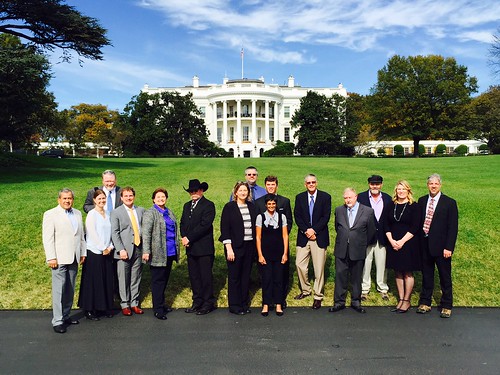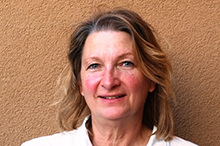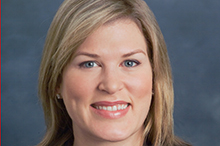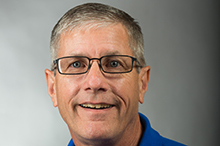
The White House recently recognized 12 Champions of Change for their leadership in sustainable and climate-smart agriculture. This week we will meet them through their USDA Regional Climate Hub, starting with the Midwest’s Loretta Jaus, Erin Fitzgerald Sexson and Timothy Smith.
USDA’s Midwest Regional Climate Hub works to bring land managers in the Midwest the science and other tools that can help them adapt to changing weather/climate conditions. Many farmers, ranchers and land managers are already leading efforts to develop and demonstrate the value of sustainable agricultural practices that benefit soil, air, and water quality while helping to mitigate climate change by reducing emissions. Educators and advisors have also been crucial in bringing science-based, sustainable, and climate-informed agricultural practices to the agricultural community.
Agriculture is the dominant landscape enterprise across the Midwest and represents one of the most extensive and intensive agricultural areas in the world. Although this area is referred to as the Corn Belt, corn and soybean production occurs on 75 percent of the arable land with the remainder used to produce a wide variety of crops and a significant forest sector.
In recent years, there has been an increase in temperature and precipitation variability, as evidenced by more instances of intense rainfall and drought. These trends are expected to continue or get worse in the future. The Midwest Regional Vulnerability Assessment highlights how this variability affects the efficiency of agricultural enterprises by reducing the number of workable field days, increasing soil erosion, and increasing heat stress on livestock.
The Regional Climate Hubs support the implementation of climate-informed agricultural practices so rural communities and businesses can help slow the effects of climate change while creating jobs, growing the economy, and providing the quantity and quality of food, fuel and fiber needed to meet the needs of the region, nation and world. The hubs rely on the support of early-adopters to help lead the agricultural community towards sustainable practices that are both productive and conserve our nation’s natural resources.
Three leaders from the Midwest were honored for their work:

Loretta Jaus and her husband Martin operate a 410-acre, rotationally grazed 60-cow dairy in south-central Minnesota. In 1980, with degrees in Biology and Wildlife Management, the couple settled in as the fourth generation on the family farm where their training perfectly complimented the farm’s conservation focus and subsequent transition to certified organic production. Loretta currently serves on the boards of the Land Stewardship Project and Minnesota Institute for Sustainable Agriculture. She has served as organic representative in Environmental Initiative’s Agricultural Leadership Dialogue project, and as an educator for CROPP Cooperative/Organic Valley’s Outreach and Education Program.

Erin Fitzgerald Sexson is senior vice president of global sustainability for the Innovation Center for U.S. Dairy—a forum where the dairy community works together pre-competitively to foster research, measurement and innovation for sustainability from farm to table. Under Erin’s leadership, the Innovation Center conducted environmental impact assessment studies which led to an industry-wide voluntary carbon reduction goal and tools and resources to measure and track progress. She is currently leading the effort to enhance dairy’s contributions toward a more sustainable food system by examining the intersection between nutrition, health, hunger, food waste and environmental impact.

Tim Smith is a fourth-generation farmer who raises soybeans, corn and cover crops on his family’s Century Farm in Wright County, Iowa. In addition to raising crops, Tim is focused on strengthening soil health, improving water quality and has worked with a number of organizations, including the Iowa Soybean Association and the Soil Health Partnership, to implement new farming methods. Tim travels the state and country, talking to farmers about how to take those first steps in trying new efforts to be more sustainable.
These Champions of Change are making a difference in the Midwest, and we look forward to working with them, and others like them, to pave the way to a more resilient future.


